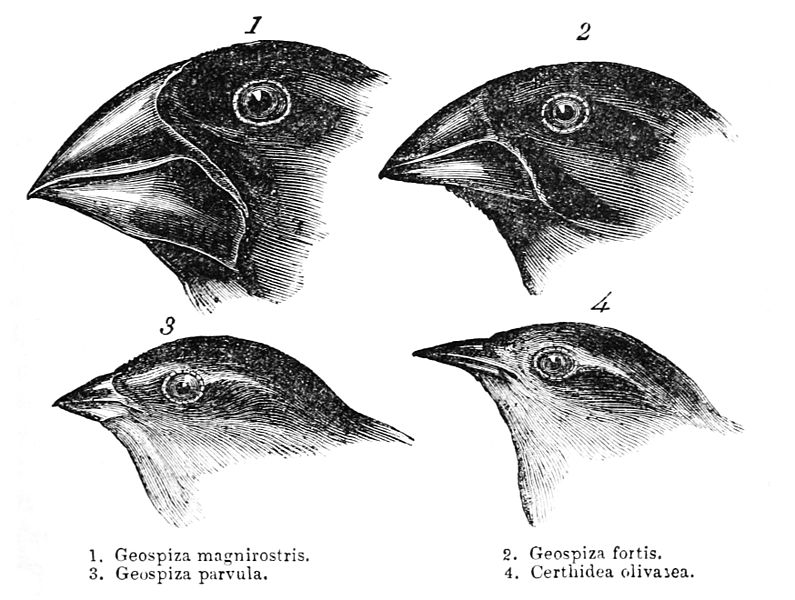It's Critical We Teach Good Science

There are several topics in science that have become politicized, and some commentary lacks quality scientific grounding. Topics have been billed as "controversial," though they are not controversies in the science community. Instead, they're better referred to as "challenged" topics, as they're challenged by the lay public for various reasons. As noted in our vision for science learning in Wisconsin, we want all students to "possess sufficient knowledge of science and engineering to engage in public discussions on related issues [and be] careful consumers of scientific and technological information." For that reason, effective instruction on these topics, and understanding bias in information we receive, are important aspects of science learning. Some resources for this work include:
General resources
- AWSA Webinar on Contentious Topics - the Association of Wisconsin School Administrators (AWSA) held a webinar in conjunction with DPI where we shared the legal parameters of contentious topics, communication strategies, and general classroom considerations.
- Why Do Many Reasonable People Doubt Science? - informative National Geographic article
- How Science Works - terms related to the nature of science and why the notion of "just a theory" is problematic (lots of other "nature of science" resources on this website, too)
- 4 Tips to Detect Bad Science Reporting: Above the Noise - PBS Learning Media resource - video and discussion guide; also have a grades 6-12 lesson plan on detecting bias
- Resisting Science Misinformation - series of lessons created by WGBH
- "Your Glorified Ignorance Wasn't Cool Then and Your Scientific Illiteracy Isn't Cool Now" - nice article by Forbes relating to the nature of science and current dialogue
- Stanford report - Science Education in an Age of Misinformation - discusses the problem and provides ideas for teaching practice and government policy to make change
Evolution
- National Science Teachers Association Teaching Evolution Resources Site
- HHMI BioInteractive Evolution Resources - lots of phenomena, media, and lessons related to evolution
- Teaching and Understanding Evolution Resources - from the National Center for Science Education
- Understanding Evolution - site from the University of California, Berkeley
- PBS NOVA Evolution - site providing media and links to other evolution instructional resources
Climate Change
Research suggests that many teachers avoid climate change and other topics that can be perceived as controversial. Just talking about it in an honest, evidence-based way makes a big difference. A role play with students using differing views on climate change could be helpful. And, here's a quick video on techniques used in science denial, noting to how to spot these logical fallacies. Finally, here's a "Debunking Handbook" geared to secondary educators to support discussions.
Other reputable resources from around the United States and globally:
- National Academy of Sciences Climate Change Resources Site - details resources linked to research, also supported by the UK Royal Society
- Strategies for Climate Change Conversations - how to support reasonable classroom dialogue in the face of un-reasoned arguments
- National Science Teachers Association Position Statement on Teaching Climate Change
- Scientific American Article - study shows that students can change their parents' minds about climate change
- Standards Testimony from UW-Madison Professor Jon Martin - wherein he discusses the importance of understanding climate science, but more importantly the process of scientific understanding
- Teaching and Understanding Climate Change Resources - from the National Center for Science Education
- Subject to Climate, K-12 Resources - hub of a wide range of K-12 resources for teacher
- American Association for the Advancement of Science - reaffirms its position on climate change - related letter sent to Congress from 31 scientific organizations
- Skeptical Science - website addresses many common unscientific ideas and myths related to climate change with links to scientific evidence
- National Science Foundation - special report that describes and provides evidence and information on climate change
- NOAA Climate Science Resource Page (aka climate.gov) - includes educational resources and scientific reports on various aspects of climate change
- OER Common Climate Education - hub of OER materials and K-12 lessons related to learning about climate change
- Washington State Project on Teaching about Climate Change - created by science educators with alignment to NGSS (WSS) in mind
- Miseducation: How Climate Change is Taught in America, by Katie Worth - This book details how oil corporations, state legislatures, school boards, libertarian think tanks, conservative lobbyists, and textbook publishers, all of whom have learned from previous fights over evolution and tobacco, are now sowing uncertainty, confusion, and distrust about climate science - further details and an interview with the author here.
Vaccines
- U.S. National Institutes of Health (NIH) Vaccine Information and Resources - there are also several research-based pages dispelling common concerns about vaccines
- Centers for Disease Control and Prevention (CDC) Vaccine Resources
- CDC COVID Data Tracker - includes current data on the effectiveness of the COVID vaccines